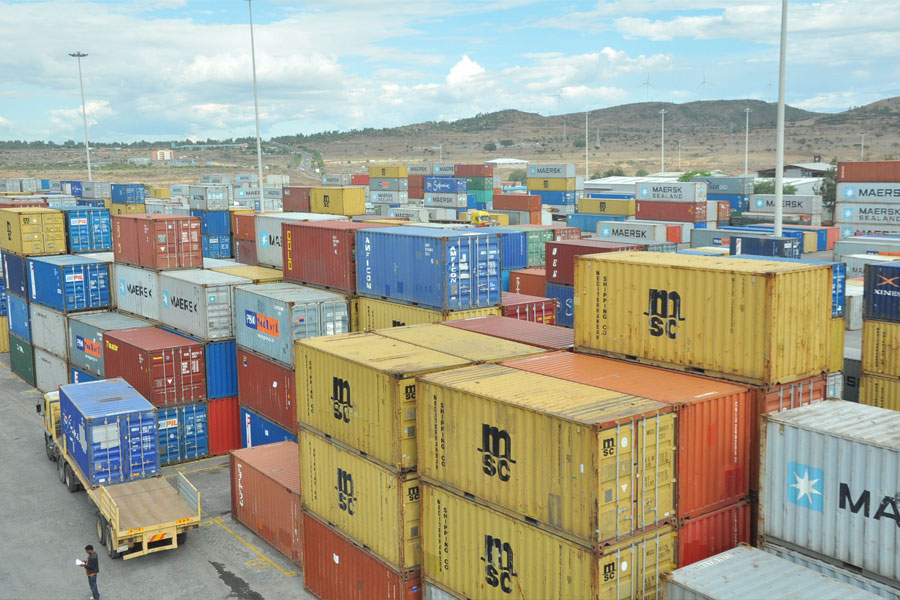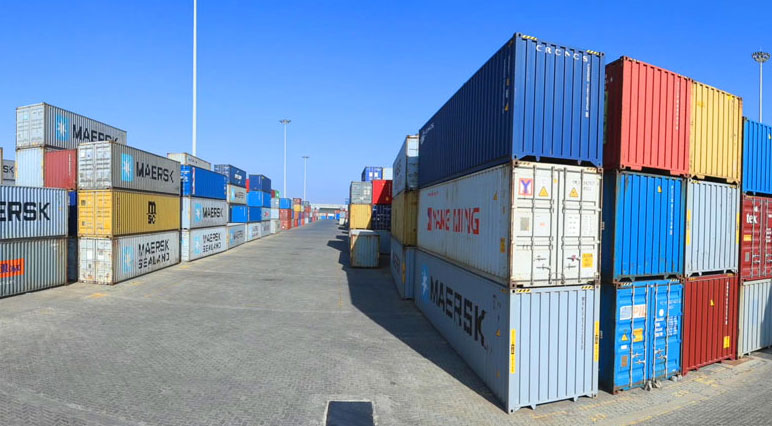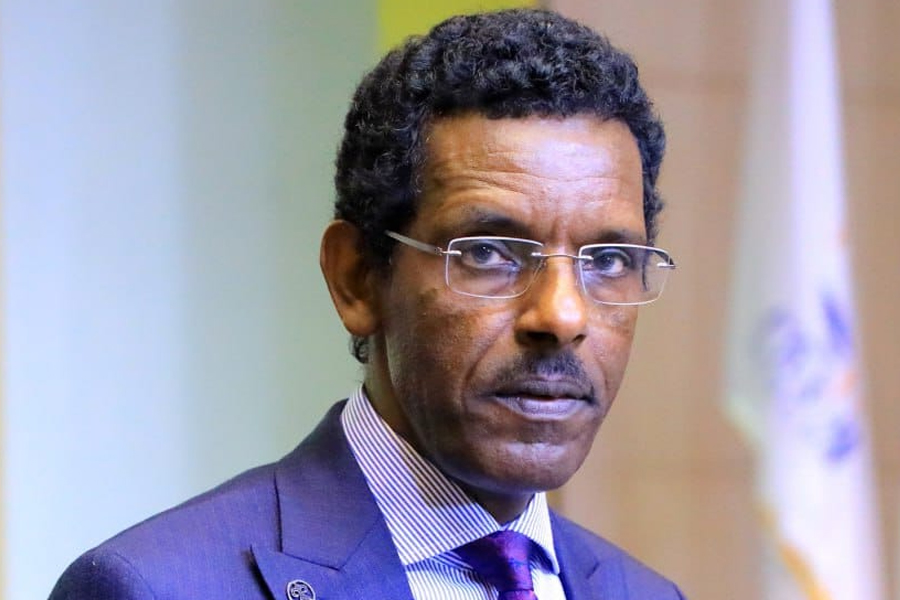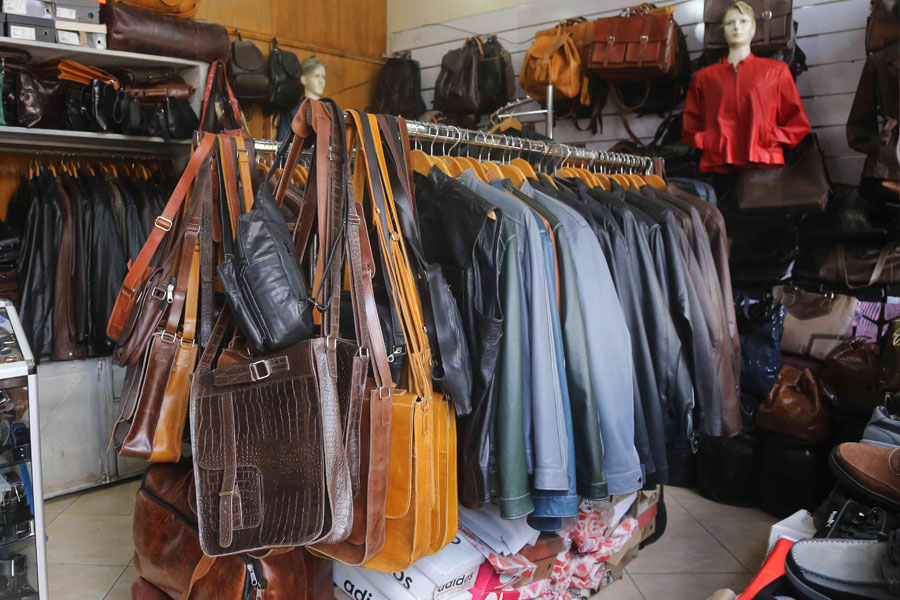
Fortune News | May 27,2023
May 10 , 2025
By Andrés Velasco
The U.S. dollar remains a linchpin in international finance. Amidst debates over its role, the allure of dollar-denominated assets continues to captivate global investors, providing a haven during fiscal uncertainties. Alternatives like Europe's fragmented market or China's controlled economic structure show the dollar's enduring relevance. In this commentary provided by Project Syndicate (PS), Andrés Velasco, a former finance minister of Chile, argued that in a climate where policy decisions could echo across continents, America's role as a financial hub faces scrutiny, demonstrating the stakes in Trump's economic manoeuvres.
President Donald Trump thinks America is only for Americans. The US Dollar, by contrast, is for everyone. Should the BRICS grouping of emerging economies create a new currency, Trump has tweeted, or "back any other currency to replace the mighty US dollar," they will face 100pc tariffs.
The Chairman of Trump's Council of Economic Advisers, Stephen Miran, disagrees. On April 7, he told the Hudson Institute that the global use of the dollar has "caused persistent currency distortions and contributed, along with other countries' unfair barriers to trade, to unsustainable trade deficits." Miran is not the only MAGA ("Make America Great Again") economist to hold that view. Michael Pettis, not of the administration but influential within it, recently wrote a commentary in the Financial Times, titled "The U.S. would be better off without the global dollar."
Worldwide demand for greenbacks increases their value. Trump thinks this is a good thing, because strong countries should have strong currencies. But he has surrounded himself with advisers who worry that a strong dollar makes American industry uncompetitive and sends jobs abroad.
Who is right?
When Filipinos, Malaysians, Saudis, Nigerians, Colombians, and pretty much everyone else use dollars to save and invest, they sustain what Valéry Giscard d'Estaing, when he served as finance minister to Charles de Gaulle, testily described as an "exorbitant privilege" for the United States, not an exorbitant cost, as Miran and Pettis believe.
Almost every government issues currency to help pay its bills. Locals accept pieces of paper in exchange for goods and services. Economists call this fragile arrangement "seigniorage." Consumer prices skyrocket when people lose faith in the local currency and try to dump it, as has happened in countries from Argentina and Venezuela to Sudan and Zimbabwe.
The US is unique in that people everywhere wish to hold greenbacks, so it collects seigniorage on the whole world. The Federal Reserve estimates that foreigners hold more than one trillion dollars, or 45pc of the total currency in circulation. This is a source of cheap funding for the US.
Imagine an American abroad who pays for a hotel room with dollars. A year later, the foreign hotelier uses those dollars to fund his own visit to America. If US prices rise during that year, this amounts to a loan with a negative interest rate Americans get from the rest of the world.
That is not the only way the US obtains funds on the cheap. All over the world, American bonds, and especially the Treasury bills issued by the US government, are used as collateral in financial transactions. Because of this convenience, foreigners are willing to hold Treasuries even if the interest rate is lower than that of other government bonds of equivalent risk and maturity (economists call this gap the convenience yield).
At the end of 2024, foreigners held nearly 8.6 trillion dollars in US federal debt. If its role as collateral means the interest rate on US debt is 0.5pc lower than it would have been otherwise, Americans are saving 43 billion dollars a year. And there is more. If the convenience yield drives the interest rate on Treasuries below the economy's growth rate, then the US enjoys a free lunch. It can issue government debt without ever having to repay it.
Before speaking to the Hudson Institute, Miran acknowledged that "demand for dollars has kept our borrowing rates low," and then proceeded to ignore this crucial fact in the rest of his speech. Nor did he consider another advantage of the global dollar. When the US gets into trouble (for instance, after the Vietnam War, or in the tumultuncompetitiveuous weeks following Trump's April 2 declaration of a tariff war), the dollar's value declines, and so does the burden of the dollar debts it owes to the rest of the world.
Other countries that borrow in their own currency must pay an interest rate that compensates for this devaluation risk. The US does notd.
Is America's gain the world's loss?
Not quite. People around the world benefit from having safe, dollar-denominated assets in which to save and invest. No other economy can provide the same service today.
Europe is the obvious alternative, but its capital market is far more fragmented than that of the US, since only in the last few years has the European Union (as opposed to individual member states) begun to issue debt instruments. China also has a large economy, but its authoritarian political system and widespread capital controls mean that the world is not lining up to hold renminbi-denominated assets.
The dollar is a global currency because American policies and institutions have historically been more reliable than those of most other countries. If MAGA economists think this is a problem, then their boss has a ready-made solution. By imposing tariffs that violate international treaties, speculating about the invasion of allies like Canada and Denmark (to take over Greenland), ignoring court rulings, and threatening to seek a constitutionally prohibited third term, Trump is making the US more like weak-currency, high-inflation countries.
The world's reaction to Trump's "Liberation Day" tariffs was unambiguous. The dollar lost nearly seven percent of its value against the euro while the yield on 10-year Treasuries rose by almost half a percentage point. The currencies of emerging and developing countries also plunged, because higher tariffs and a slowing world economy dim their growth prospects.
It is not easy to devise a policy that hurts almost everyone, but MAGA economists have managed this feat. If the global dollar goes down the drain as a result, it will have many mourners.
PUBLISHED ON
May 10,2025 [ VOL
26 , NO
1306]


Fortune News | May 27,2023

Money Market Watch | May 11,2025

Agenda | Nov 27,2018

Featured | Jan 07,2023

Fortune News | Sep 14,2019

Fortune News | Apr 06,2019

Radar | Nov 16,2024

News Analysis | May 06,2023

Agenda | Apr 22,2023

Commentaries | Oct 08,2022

My Opinion | 129932 Views | Aug 14,2021

My Opinion | 126236 Views | Aug 21,2021

My Opinion | 124253 Views | Sep 10,2021

My Opinion | 122027 Views | Aug 07,2021

Dec 22 , 2024 . By TIZITA SHEWAFERAW
Charged with transforming colossal state-owned enterprises into modern and competitiv...

Aug 18 , 2024 . By AKSAH ITALO
Although predictable Yonas Zerihun's job in the ride-hailing service is not immune to...

Jul 28 , 2024 . By TIZITA SHEWAFERAW
Unhabitual, perhaps too many, Samuel Gebreyohannes, 38, used to occasionally enjoy a couple of beers at breakfast. However, he recently swit...

Jul 13 , 2024 . By AKSAH ITALO
Investors who rely on tractors, trucks, and field vehicles for commuting, transporting commodities, and f...

May 24 , 2025
Public hospitals have fallen eerily quiet lately. Corridors once crowded with patient...

May 17 , 2025
Ethiopia pours more than three billion Birr a year into academic research, yet too mu...

May 10 , 2025
Federal legislators recently summoned Shiferaw Teklemariam (PhD), head of the Disaste...

May 3 , 2025
Pensioners have learned, rather painfully, the gulf between a figure on a passbook an...

May 24 , 2025
First came the trickle, then the torrent. On a humid night in late March, a low-lying neighbourhood on Addis Abeba's southeastern fringe wat...

May 24 , 2025 . By BEZAWIT HULUAGER
When Moses Akuei received his geology degree from Wolaita Sodo University, the 27-year-old from South Sud...

May 24 , 2025 . By BEZAWIT HULUAGER
The Central Bank is launching a sweeping initiative to overhaul the agricultural finance system, targetin...

Federal legislators are considering a bill that would allow foreign nationals to lease land and own resid...